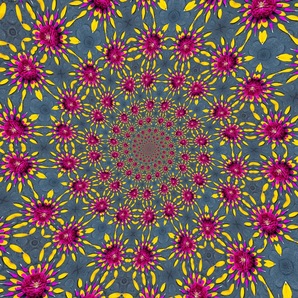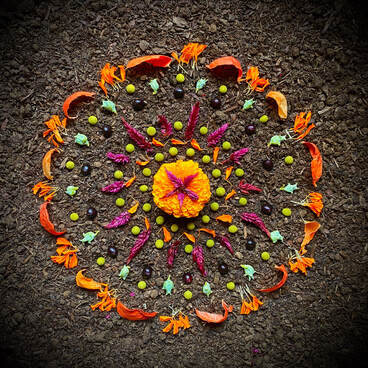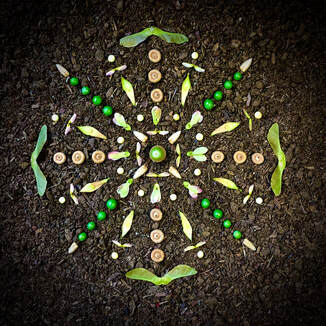|
5 things to know about shame that could make a difference in your life: I believe that shame is an emotion that affects everyone deeply. Even if you don’t personally identify shame as being on your “top hits” list, it might be playing subliminally in stealth mode. 1. It is quite normal to feel shame. It is not anything to feel ashamed about! And, there's the rub. It is incredibly common to feel as if shame itself is something we have to hide from ourselves and others. To feel ashamed of our shame. It may go something like this… “If I acknowledge that I feel shame, then the very thing I feel ashamed about will be confirmed as the truth about who I am. If I hide this feeling, then others won’t see how deficient I am. Then I won’t have to feel how deficient I am.” However, feeling this way is a pervasive experience for human beings living in the 21st century, at least at some point in our journey. The irony is that unless you have unsupportive friends and confidants, your admission is more likely to be seen as an inspiring demonstration of courage than as evidence of a flawed or defective character. 2. Shame can be experienced as a positive and helpful emotion when we have a healthy relationship with it. When we don’t hide our shame about something we have done or not done, then it can be an opportunity for reconciliation with ourselves or another. If we have not lived up to our own reasonable values, it is healthy and useful to feel some shame about that. The purpose is not to punish, but to bring awareness to the fact that we have done something that is out of integrity for us. Then, we can clarify what is important to us and recommit to living in a way that is a demonstration of our values. If you are willing to see shame as a helpful emotion, then admitting to it can be an important step in deepening integrity and forming strong and intimate relationships. 3. There is a difference between feeling ashamed about something we have done and feeling ashamed about who we are. It is healthy to feel ashamed about something we have done that falls considerably short of what we rightfully expect from ourselves. However, if our expectations for ourselves are unreasonable, then our shame will be imbalanced. If our expectations are too high, we will be living with the tyranny of inner criticism. If they are too low, we will live with the pain of a life lacking adequate meaning and challenge. On the other hand, when we feel ashamed about who we are, we are no longer experiencing shame as a useful emotion, but rather as a defining truth about the nature of our very essence. Many years ago I labeled this phenomenon the “ego deficiency trance,” to denote that while we can experience and believe that we are deficient, inadequate, not good enough, unloveable, etc., this perception is illusory and not a fundamental truth. Using the label of “deficiency trance,” or “shame” can be a way of noting when it is present in our experience. This provides an opportunity to recognize that it is something we are experiencing, something we are believing, but not what we are. 4. Discovering the origin of shame’s presence can be useful. If you are experiencing shame or guilt\* and you check for its source, you may find a very specific and appropriate reason for it. In that case, you can feel the shame or remorse or regret, take corrective action if necessary, and come back into alignment with your values and intent. This is assuming that your emotional response to an error in your behavior is balanced. As mentioned above, if our expectations for our behavior are unreasonable and lean to either perfectionism or indulgence, then our feelings of shame (or guilt, remorse, regret) about the situation may be way over the top or utterly absent. If you are experiencing what I have called the “ego deficiency trance” or “deficiency trance,” or what has also been referred to by many as “toxic shame,” then you are believing on some level that who you are is fundamentally flawed. While I believe that in our culture, this is ubiquitous, I also believe that for most people it is unconscious. The good news when it is conscious is that it is coming to the Light of awareness to be healed, to be liberated. The origins for this type of shame or guilt applied to our very being, not just to specific actions, has deep roots. Deeper than we can imagine. One frame we can look to for the roots of this perceived flaw in our being, is through childhood conditioning. If you recognize this as an issue, learning more about how you as a child learned to believe that you were deficient, not good enough, etc., can be very healing. It can help to normalize these feelings so that they can be brought into the Light, and provide a foundation of insight that engenders understanding, empathy and compassion. If like Neo in the movie “The Matrix,” you choose to take the red pill and follow the white rabbit down the hole into a mind-blowing discovery of what “reality” is and what the “I” of our being really is, the origin of shame can be seen in an even more profound way. When we become aware of the difference between the mysterious and profound nature of our Essence and the survival program often referred to as “ego,” we can look to a spiritual frame to point us to the possible origins of this internal process mistakenly assumed to be “me.” This line of inquiry, like the one in the paragraph above, is worthy of much more consideration than one paragraph of words. Keep that in mind as you read on. Let us consider for now the possibility that in truth you have never been other than Spirit. You can never truly be separate from your Divine origin. And, in truth, you are always and already whole, complete, and perfect. However, endowed with unlimited power, you have the power to dream into being anything. Right now, you, together with everyone else, are dreaming this dream of duality, limitation, and separation. Together we are dreaming we are separate beings, separate from each other and from heaven and earth. What if we could uncover the first instant of imagining ourselves to be a separate mind, soul, or body? What if from the point of view of the ego this was believed to be a great sin against our Divine Parent? What if we carried forth an unconscious shame or guilt from this original conception of separation? And, what if it was possible to offer this original Shame to the Light of the Source itself, from which no blame or indictment is possible? I encourage you to meet yourself right where you are in relation to your understanding of shame. And, you may not need to know anything more about its origin. 5. It’s useful to assume that shame has a good intention. If we assume that our shame has a good intention, we can learn to first look for how it is trying to help us. When we see that it is attempting to help us rather than hurt us, we understand where it came from, and we can allow it to be held in the healing presence of compassion. Mild shame is easy to understand in this way. The intention may be to let us know that we have done something that is either not in accord with our values, or not in accord with the values of our family or society. It is a feedback mechanism that allows us to make corrections to our behavior. Toxic shame or the deficiency trance may take a little more contemplation to unpack. But here is one example using the childhood conditioning model: A child is subjected to physical, sexual or emotional abuse or neglect. The child lacks the intellectual development that would be necessary to recognize that this abuse is a reflection of the parents immaturity, woundedness and inability to provide consistent and loving care. So they internalize the parents’ behavior as a reflection of who they are. And, even if they could realize the parents are at fault and not themselves, it may be easier for the child to live with the false belief that their parents are good, caring and capable rather than a more accurate understanding of harmful parenting behaviors. However, the cost of creating this more comfortable perception of their caregivers is to take on the cause for such treatment to be themselves. “I must be bad in order to be treated like this. It must be my fault, like they say it is.” When toxic shame is creating difficulties in your life, I recommend getting one to one support with someone qualified to help with this issue. However, for anyone on a path of deepening awareness, understanding the nuances of this topic, both conceptually and experientially, can be invaluable. * Note: Guilt is sometimes used as an equivalent to shame, and sometimes used as a composite of shame and fear.
1 Comment
What if understanding and learning to embody and live from true happiness is the most reasonable, practical, and responsible activity we could possibly undertake at this time? This week, I will continue to explore the thematic elements of unconditional happiness, being “happy-with,” and the frame of seeing unhappiness as an unconscious strategy for getting something we want. Happiness can be a challenging concept to use in this context for many people and for many reasons. However, I choose to use it because I find it to be the most powerful way to locate hidden resistance to what is. It has finally become undeniable to even most in the mainstream that we are truly in a time of great crisis and great change. Happiness might seem to be an unreasonable, unattainable, inappropriate (or even selfish) aim at such a time as this. If you would agree with this consciously or unconsciously, I suspect that you might be missing a very crucial understanding of the true nature of happiness. Why do we value personal and environmental health, economic prosperity, equality, and good leadership? Values that are all being currently threatened. Ultimately, because we want to be happy and at peace, or we want that for those we love. And, as we actually experience happiness in abundance, we may realize we want happiness and peace for all beings, for real happiness rejects nothing and includes everything. Truly doing what we can to respond to the crises and challenges we are facing individually and collectively has two aspects. First is discerning what is ours to do and doing it. Second is doing what we must to return to the deep well within us from where ever-present happiness and peace spring forth. This is not a casual return, but a sacred return. It involves facing whatever we have turned away from. Owning what we have disowned. Feeling what we have refused to feel. And seeing what we have tried to keep hidden. This is often a painful process, and at times may require every bit of strength and courage you have to keep going. But what is the alternative? Look around at the insanity of the world we are now living in. What if this is the result of our collective refusal to confront our shadow? If we aim for true happiness, or true love, or truth itself (ultimately they are all one essence) we have to go back to our Source the way we appeared to leave it. We can unlearn the ways of unhappiness, unforgiveness, and the belief in separation. We can come home to our Self. I don’t know how this great drama of our time is going to play out, and I don’t believe anyone can know absolutely. But some constants will remain. Everything that is born will die. Everything we can know with our senses is temporary and ever-changing. And, who we really are is forever unborn, a silent witness to all of it. And, everything that happens in this human life can be the call to take a stand for what is most important, inside and out. Blessings on your sacred return. What does unconditional happiness mean at the deepest levels of our human experience? When we are willing to open to our deepest fears and pain without resistance, a paradox presents itself. In such a willingness, there is no suffering, there is no unhappiness, even as we bear witness to great suffering and allow it to be seen, felt, and allowed to pass through us. Like it or not, suffering is inherent to the human condition. Suffering’s appearance is a given. Consciously realizing that at the core of our being there is no suffering, is not. A wise person once said, “Ask and you shall receive, knock and the door shall be opened to you.” The elements that I teach concerning the true nature of happiness and the guide post of unhappiness are one way of asking and receiving. And, one way of knocking and walking through the doorway of our unhappiness into the open sky at the core of Being. True happiness is a state of being that is inseparable from our timeless nature. It is a quality of who we truly are. It can be reflected in our daily lives as positive emotions, pleasant sensations, or positive states of mind. But true happiness is both more than these states and independent from them.
I talk a lot about happiness and unhappiness because I have found that understanding and paying attention to both is one of the most potent keys to moving from unconscious suffering to the freedom of Awareness. There is so much to explore on this topic, that truly it is a life’s work. So keep in mind that I am only working with broad brush strokes here. Now, if you would indulge me for a moment: Let's say you accept the possibility that the nature of who and what you already are (beyond any appearances to the contrary) is limitless awareness, infinite potential, and perfect happiness. (Yes, I know that is a big ask for some of you!) So here you are, sitting in silence with no image or story in your mind, and thus no reactivity or judgment of anything. Just deep peace. Completely happy, with no need or desire for anything. Empty space in every direction, endlessly. An emptiness filled with perfect happiness and love. And you recognize that this is who you truly are. Fantastic. But hold on. We are just beginning here. Now, there is this thing you call “my life” which includes a body and mind you have learned to call “my self.” It also includes lots of other elements you have learned to call “my friends,” “my family,” “my world,” “my house,” “my past,” “my issues,” and on and on. Given this deep-rooted tendency to assume ourselves to be a body and/or mind, how do we remain grounded in our natural state of unconditional happiness while we move through the virtual dream-scape of our lives as fully embodied and engaged participants? I have found that learning how to be “happy-with” is a natural bridge between the unconditional nature of who you are in truth, and your everyday life of conditional experience. If you are identified as a flawed and limited individual, this orientation opens a window to what is universal and perfect. If you are more identified with your infinite nature, yet believe that your existence as an individual is filled with obstacles to your permanent abidance, then learning the art of being “happy-with” reveals that there is no obstacle whatsoever. Everything you react to, judge, hate, and fear can be a doorway to greater understanding, freedom, and wholeness. Learning to be “happy-with” provides a bridge for Heaven and Earth to meet, for Love’s Presence to be allowed to shine through our relative circumstances, and for every part of our experience to be welcomed into clear light. What if it is possible to be happy-with everyone and everything? Not as an endorsement of something that is harmful. Not as an emotional state or mental attitude to be sustained continually. But, as an expression of Beingness that is effortlessly self-sustaining and all-inclusive. It is possible to take appropriate action concerning the offenses you perceive, without needing to use aggression or unhappiness to motivate or justify your actions. It is possible to motivate yourself and others through inspiration rather than criticism or self-flagellation. What I have experienced and observed is that authentic love, forgiveness, and understanding have the power to heal, to transform, and to inspire the best in myself and others. I am not suggesting this is as simple as noticing unhappiness and deciding to choose to be happy-with (okay-with, at peace-with) something that we have a strong negative reaction to. However, it is possible to use everyday life to notice when we are coming from a judgment of self or other, or fear of self or other. This simple noticing can have a profound effect. When needed, we can seek guidance for how to take the next step on the way back to peace. Back to being happy-with what is. I have been saddened as well as gladdened by the recent events that have unfolded in the United States and around the world. Saddened by the pain and loss caused by ignorance, fear, injustice, and racism. And gladdened by what seems to be an increasing awareness of the systemic problems that are merely today’s expressions of a 400 year old history of slavery and oppression. I enjoyed playing sports when I was younger, and still enjoy vicariously tuning in to the sporting world at times. I have limited capacity and interest to look at screens so I settled on one sport to watch: professional football. (Judge me if you must) It is the off-season, and we are in the middle of a pandemic. However, ESPN is constantly putting out sporting world headlines and articles. So, I have enjoyed watching teams assemble their players for the 2020 season which is scheduled to start in September. Probably in empty or partially empty stadiums. What the heck does Football have to do with the protests that are happening in the streets? The NFL (National Football League) is a microcosm of our country in many ways. I will skip the analysis of why this is so. The headlines on ESPN regarding NFL news have been surprising and encouraging. I am seeing things happen in this very “old boy” institution that I could never have imagined seeing prior to the recent acts of racial violence and protests against it. After receiving a video put together by several influential, black NFL players - Roger Goodell, the commissioner (CEO) of the NFL released the following statement on Friday: “We, the National Football League, condemn racism and systemic oppression of black people. We admit we were wrong for not listening to NFL players earlier and encourage all players to speak out and peacefully protest. We believe that black lives matter.” To give this statement context perhaps you have heard of a Quarterback who played for the San Francisco 49ers named Colin Kaepernick. He is now being remembered because he started taking a knee during the national anthem as a protest against police brutality and systemic racism, back in 2016. Soon more black players followed. The NFL, led by Goodell and the team owners, suppressed the protests by requiring the players who wanted to protest to stay in the locker room until the anthem was over. Colin has not been re-signed by any team since then. Not because he lacks the merit, but because he would offer no guarantee that he would not protest again. Future Hall of Fame player, and quarterback for the New Orleans Saints, Drew Brees was quoted earlier in the week saying during an interview that he will “never agree with anyone disrespecting the flag of the United States of America.” His teammate, Demario Davis, let Drew know how deeply his comment hurt him, and he and other teammates had a hard conversation with their leader about what taking a knee during the national anthem was truly about. Drew heard him. After speaking with Demario, Drew made a public apology and acknowledged that he completely missed the point. Demario posted the following comment on social media: “A big part of leadership is admitting when you are wrong, and correcting your mistake. A model that All of America can follow, admit the wrong done to the black community, fix the issues and WE ALL move forward together. Let’s all stand together now and find solutions.” There are many more examples from the microcosm of the NFL indicating a sudden and major shift in awareness from players, to coaches, to general managers, to the commissioner of the NFL. And, I know there are many stories like this happening throughout the U.S. and the world in all arenas of our society. Yes, no doubt the polarization in U.S. politics (a mirror of the divided mind), and around this issue, is also playing out. But for now, I am choosing to focus on the possibilities for greater awareness, capacity for taking responsibility where we can, for acknowledging another’s pain and any role we have played in it. And the capacity to deeply and truly forgive one another as well as ourselves. I don’t expect to see world peace. I don’t expect to see the end of injustice, ignorance, fear, hatred, greed and all the many other shades of our collective shadow. As far as I can tell, this human experience is much like a school where we are free to have any experience we choose, and learn from the consequences. The duality of this world is a given. What is not a given is the choices we make when we notice a moment of choice. Will we choose what is familiar or what is right? Will we choose comfort and safety or love and charity? Will we choose stress and unhappiness, or will we choose forgiveness and peace? Perhaps you have experienced your own personal version of a tipping point of pain (on any level) that became no longer acceptable. And out of it came a cry of protest against the oppressive force of the fearful conditioned ego, and a movement toward authenticity, wholeness and true freedom. What if what is happening in the world is an expression of our collective state of consciousness? If this is true, then in addition to whatever actions you are moved to take to further the betterment of the state of this world, deepening in the presence of the abiding Love that is our true nature is perhaps the greatest contribution we can make to our ultimate shared challenge: To choose love over fear. To let go of what no longer serves us or anyone else. To take responsibility for what is ours to do, and do it. To realize true peace and to include all beings within it. |
Saleem's BlogSaleem Berryman is a contemporary spiritual teacher and psycho-spiritual guide. Archives
January 2021
Categories |




 RSS Feed
RSS Feed